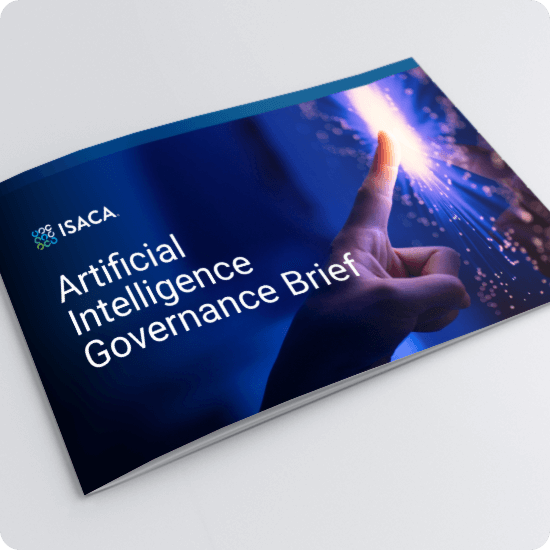



“Knowledge will forever govern ignorance; and a people who mean to be their own governors must arm themselves with the power which knowledge gives” -James Madison-4th U.S. President
The importance of IT governance cannot be overemphasized. It is an integral part of executive management, yet stays independent of management and directs how management should manage IT.
Small companies tend to grow their governance functions per their immediate needs or to resolve near-term problems. This is known as organic governance, though these functions may be found wanting when a company scales up to higher levels where the governance structures need to be deliberately designed.
ISACA’s COBIT framework elucidates six principles for an information and technology governance system:
- Provide stakeholder value
- Components must work together in a holistic way
- The system must be dynamic
- Governance should clearly distinguish between governance and management
- The system should be tailored to enterprise needs
- The system should cover the enterprise end-to-end
The emergence of digital transformation has prompted a significant change in IT governance. In order to fully utilize digital technology and guarantee alignment with business goals, organizations must adopt agile and innovative governance methods. Thus, organizations need to readjust the governance framework to align with strategic goals, address risks and capture emerging prospects.
In this blog post, we will explore the consequences of ignoring IT governance during this rapidly evolving digital age by accentuating five reasons IT governance should not be overlooked:
1. Mismanaged Risk Management
On 19 July 2024, CrowdStrike, a leading cybersecurity firm, released a faulty update for its Falcon sensor software, which triggered widespread system crashes and the infamous “Blue screen of death” on windows machines across the globe. It disrupted air travel, banking, retail and other major industries. This incident shows the delicate balance in IT between rapid security updates and system stability, and indicates the importance of IT governance in using technology while minimizing risk and seeking business value.
And in this era of emerging technologies, when AI is not properly governed, it can lead to the following risks:
- Bias: AI can amplify human biases if trained on biased data.
- Lack of transparency: There is no clear transparency on how AI arrives at certain decisions.
- Unemployment: AI may automate jobs done by humans, leading to job displacement and economic instability.
- Malicious use: AI can spread misinformation as well as undermine cybersecurity.
- Dependency: Over-reliance on AI systems can lead to depletion of critical thinking and decision-making skills.
2. Strategic Misalignment
When IT governance is overlooked, one of the inevitable consequences is strategic misalignment, which leads to a discrepancy in what the organization needs and what IT is actually providing. Thus, there will be wasted time resources, poor value from IT investments, mismanaged risks and regulatory breaches, leading to loss of reputation and a dwindling bottom line. In the context of AI governance, the consequences of misaligned AI can be disastrous.
In the story of King Midas, an ancient Greek king dies of starvation, as he makes a wish that everything he touches turns to gold, which finally transforms his food into inedible gold. His wish was an incomplete representation of his actual desires and he suffered as a result. The designers of AI systems often find themselves in the same position as Midas. The misalignment between what we want and what we can specify has already created significant harms.
3. Resource Mismanagement
A lack of IT governance can lead to resource mismanagement such as overspending on IT applications or servers, or a duplication of acquisitions without a record of what has already been purchased and how it is being utilized. Blind investments in emerging technology without a compatibility check with existing infrastructure or a clear strategy for co-existence is an indication of poor IT governance.
According to the Future of Jobs Report 2025, by 2030, 170 million new jobs will be created, displacing 92 million current jobs and resulting in a net growth of 78 million jobs. While this will include creation of some new jobs by AI, such rapid addition and displacement will surely affect many people. Organizations should have a clear plan for recruitment and retention of human resources. After all, it is the human resources that will decide the survival or the perishing of an enterprise, regardless of advancements in technology. Mindless layoffs by enterprises will surely inflict long-term damage and erode trust among existing employees.
4. Performance Mismanagement
IT governance’s mainstay is performance management – that is, to get the best performance at the least cost. As businesses embrace AI, they not only inherit its energy burden but also contribute to a broader cycle of ecological strain. Recent research shows that training GPT-3 consumed approximately 1,287 megawatt hours of electricity, emitting 502 metric tons of CO2, which is roughly equivalent to the emissions of 112 gasoline-powered cars a year. According to the International Energy Agency (IEA) a single ChatGPT request requires 10 times more electricity than a Google search. In addition, large-scale AI servers stored in data centers consumes large amounts of water.
Global AI demand is expected to consume 4.2 to 6.6 billion cubic meters of water by 2027. Thus, a robust IT governance mechanism takes a balanced view of all aspects of emerging technologies – including energy consumption.
5. Value Depletion
Flawed or a total lack of IT governance, instead of ensuring value delivery from IT investments, will pave the way for value depletion or total erosion. In the current accelerated pace of digital transformation and mad race for embracing emerging technologies, a robust IT governance framework is essential to lead to agility and innovative approaches that match the demands of the present challenges of the business technology landscape.
IT Governance Should Be Non-Negotiable
IT governance was never optional and now it is surely non-negotiable. In this current fast-paced world of AI, the perils of the absence of IT governance will lead to irreversible damage. When organizations take shortcuts in their IT governance to improve their financial results, they should realize that such short gains are coming at a huge long-term disadvantage, with risks of facing legal and regulatory penalties in addition to permanent erosion of their bottom line.
Author’s note: The opinions expressed are of the author’s own views and do not necessarily represent that of the organization or of the certification bodies he is affiliated with.